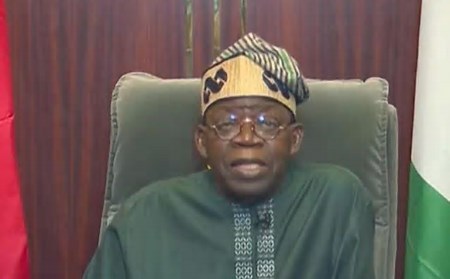As President Tinubu Takes charge. Rivers Gets a shot at Peace
As President Tinubu Takes charge. Rivers Gets a shot at Peace
I President Bola Tinubu Declares State of Emergency in Rivers State: A Necessary Step Towards Peace and Order
In a decisive move to address the escalating political and security crisis in Rivers State, President Bola Tinubu has declared a state of emergency in the oil-rich region. This announcement, made on 18th of March , comes amid growing concerns over the breakdown of law and order, political instability, and the threat to Nigeria's economic interests in the state. The declaration underscores the federal government's commitment to restoring peace, ensuring the safety of citizens, and safeguarding national assets.
The Context of the Crisis
Rivers State, a key economic hub in Nigeria, has been embroiled in a protracted political crisis characterized by violent clashes, protests, and a deepening rift between political factions. The state, which hosts critical oil and gas infrastructure, has seen a surge in unrest, with reports of kidnappings, armed confrontations, and sabotage of oil facilities. These developments have not only threatened the lives and livelihoods of residents but also posed significant risks to Nigeria's economy, given the state's contribution to the nation's oil revenue.
The political turmoil in Rivers State has been fueled by a power struggle between key political figures, leading to a paralysis in governance and a vacuum in leadership. This has created an environment where criminal elements thrive, further exacerbating the security challenges. The inability of local authorities to effectively address these issues has necessitated federal intervention.
Why the State of Emergency is Necessary
1. Restoration of Law and Order: The primary objective of the state of emergency is to restore law and order in Rivers State. The declaration empowers the federal government to deploy additional security forces, including the military and police, to quell violence, protect citizens, and prevent further deterioration of the situation. This is critical to creating a safe environment where residents can go about their daily lives without fear.
2. Protection of National Economic Interests: Rivers State is home to vital oil and gas installations that are crucial to Nigeria's economy. The ongoing unrest has disrupted oil production, leading to significant revenue losses. By declaring a state of emergency, the federal government aims to secure these assets and ensure the uninterrupted flow of oil, which is essential for the nation's economic stability.
3. Political Stability and Governance: The political crisis in Rivers State has undermined effective governance, with key institutions rendered ineffective due to the power struggle. The state of emergency provides an opportunity for the federal government to intervene and facilitate the resolution of political disputes, ensuring that governance is restored and the interests of the people are prioritized.
4. Prevention of Escalation: Without decisive action, the crisis in Rivers State could escalate, potentially spilling over into neighboring states and further destabilizing the Niger Delta region. The declaration of a state of emergency sends a strong message that the federal government will not tolerate actions that threaten national security and unity.
5. Humanitarian Considerations: The unrest in Rivers State has displaced many families and disrupted access to basic services such as healthcare and education. The state of emergency will enable the federal government to coordinate humanitarian efforts, providing relief to affected communities and addressing the immediate needs of the population.
President Bola Tinubu's declaration of a state of emergency in Rivers State is a bold and necessary step to address the escalating crisis in the region. By restoring law and order, protecting national economic interests, and facilitating political stability, the federal government is taking decisive action to safeguard the well-being of Nigerians and the unity of the nation. However, the success of this intervention will depend on its implementation, with a focus on inclusivity, respect for human rights, and a commitment to long-term solutions. Only through such an approach can lasting peace and order be achieved in Rivers State.
Written by
Gbolahan Bakare




















